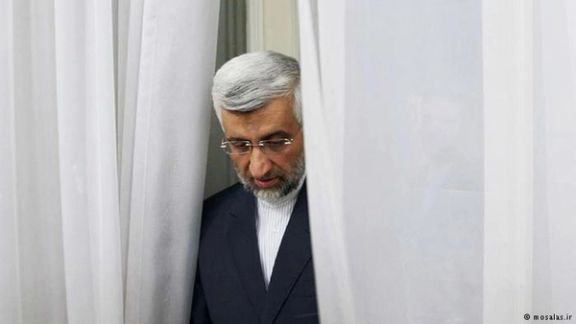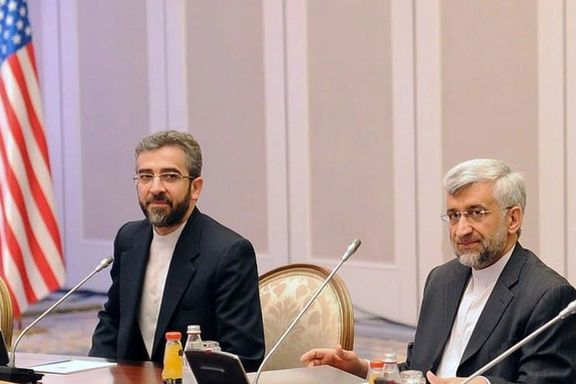Top Iran Hardliner Writes To Khamenei, Urges Withdrawal From JCPOA

Iran’s former nuclear negotiator Saeed Jalili has reportedly sent a letter to the Supreme Leader opposing nuclear talks and suggesting withdrawing from JCPOA.

Iran’s former nuclear negotiator Saeed Jalili has reportedly sent a letter to the Supreme Leader opposing nuclear talks and suggesting withdrawing from JCPOA.
Reports about the 200-page letter has been circulating in Iran for a few days, but on Tuesday Sharq newspaper for the first time revealed its content quoting “an informed source”, who said that Jalili has gone beyond criticizing the 2015 nuclear agreement.
Jalili, known as a hardliner on the nuclear issue and an opponent of the Joint Comprehensive Plan of Action, was Iran’s chief negotiator from 2007-2013, when ex-president Mahmoud Ahmadinejad’s presidency came to an end and Hassan Rouhani assumed office, bringing with him Mohammad Javad Zarif as foreign minister.
During Jalili’s tenure Iran’s nuclear diplomacy failed in finding a compromise with the West and evidence of large-scale uranium enrichment eventually led to the United Nations Security Council beginning to impose economic sanctions on Iran.
Fresh talks started in the first year of Rouhani’s presidency that eventually led to the signing of the JCPOA.
Sharq newspaper quoting its ‘informed source’ says that Jallili in his letter proposed to Khamenei to end the nuclear talks, withdraw from the Obama-era nuclear agreement and boost uranium enrichment to 90 percent, which would mean weapons-grade fissile material. Currently, Iran enriches to 60-percent purity, which has already alarmed the Western powers.

Jalili in his letter also told the Supreme Leader not to be concerned about a harsh reaction by world powers, arguing that if the West takes Iran’s case to the Security Council, Russia and China would veto any return to international sanctions. He then goes a step further and proposes to open direct negotiations with United States at that stage, from apposition of strength and extract concession, including the removal of US sanctions imposed by former president Donald Trump.
This would amount to a repeat of Jalili’s experiments when he was chief nuclear negotiator. The history of those negotiations shows that his procrastinations and hardline postures led to the international sanctions, which Russia and China did not veto between 2007-2112, banning Iran’s oil exports, weapons trades and banking restrictions.
The existence of Jalili’s letter has not been officially confirmed, but besides media reports, the spokesman of the foreign ministry, Saeed Khatibzadeh, did not deny it. When asked about his reaction to the letter on Monday, he suggested that reporters should ask Mr. Jalili and went on to say that Iran’s nuclear negotiating strategy is “decided collectively”, meaning that a range of present and former officials have input.
Sharq in its report says that before sending the letter to Khamenei, Jalili shared his views with Foreign Minister Hossein Amir-Abdollahian and current nuclear negotiator Ali Bagheri-Kani, his former protégé, but failed to convince them. After that he decided to appeal to the highest decision maker in the land.
The idea of direct talks with the United States was mentioned by the foreign minister last month, but as a part of reviving the JCPOA and not withdrawing from it.
Sharq mentions that after years of relentless attacks against the JCPOA, a large segment of hardliner conservatives faced a dilemma when Ebrahim Raisi who was representing them, became president last year and continued nuclear talks. One choice was to back down from their opposition and support the new hardliner government, and another was to continue opposing a nuclear compromise.
The newspaper commented that Jalili apparently has decided to continue playing the role of a “shadow government” and oppose negotiations and any agreement that falls short of full uranium enrichment.